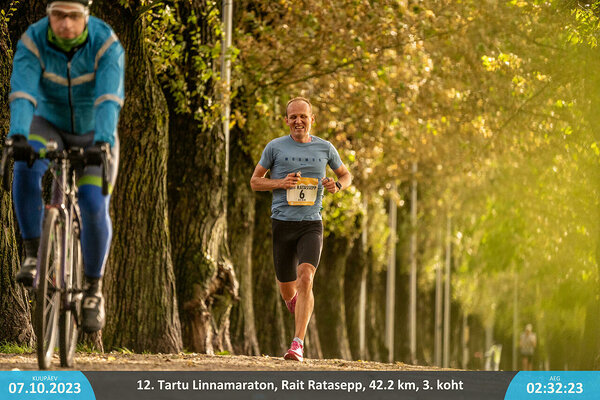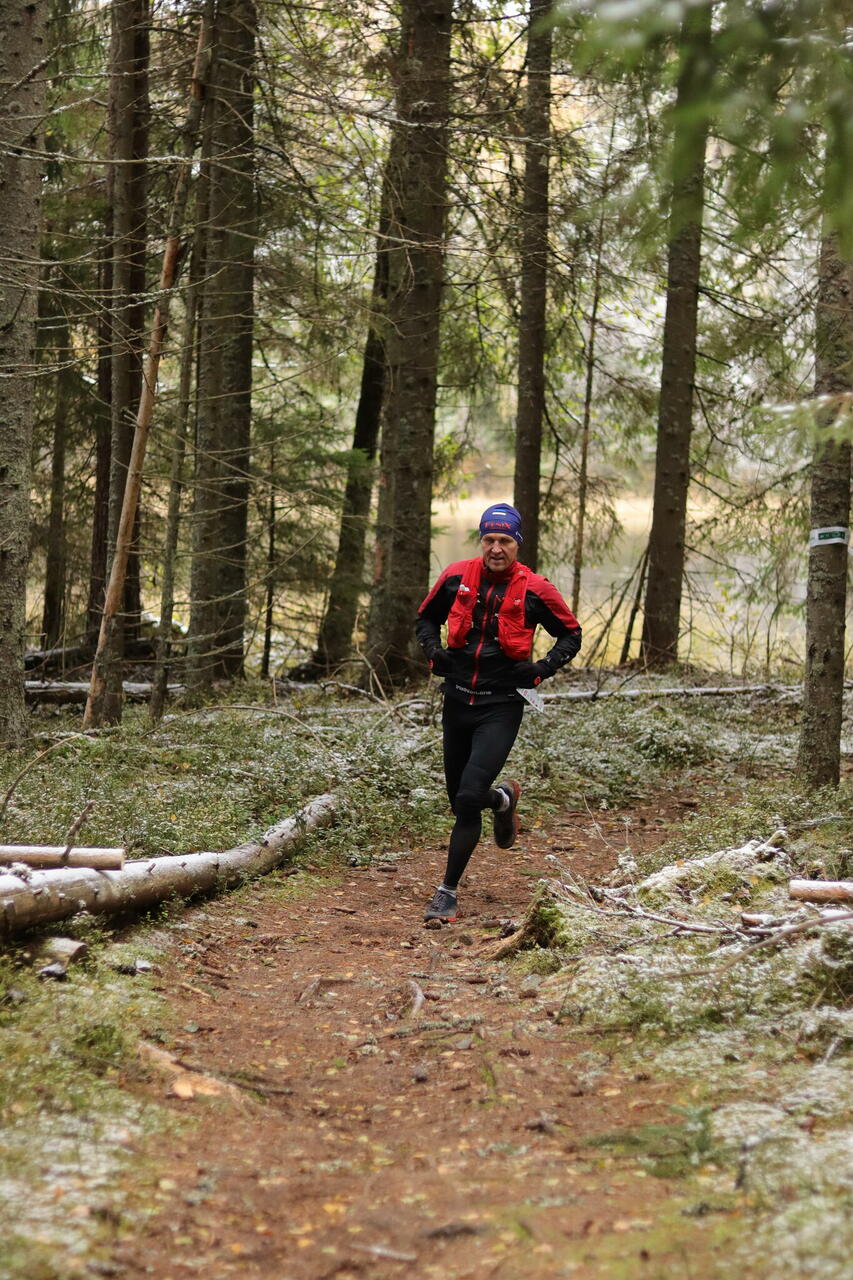At the end of October, with the 100 km trail run in Haanja, I considered the 2023 season to be over and and started a new season the very next day. I usually don’t even take a short break from sports at the end of the season to ‘rest the mind,’ because I don’t need it. Doing sports is precisely what keeps me mentally sharp and motivated every day. The preparation for the new season marks my favorite period of the year – now I can solely focus on training and developing my capabilities. Therefore, it should come as no surprise that I was back in training the day after the Haanja 100 km trail run, and just two weeks later, I started the first major (7-week) training cycle in preparation for the goals of 2024. Currently, I am in the final week of this training cycle. Analyzing and comparing today’s training numbers (distances, powers, heart rates, speeds, etc.) with the past shows that there is great progress.
If I were to highlight one significant observation in my sports activities this year, it would be the incredibly fast recovery speed, something I have not experienced before. Already after the Death Valley challenge this summer, it only took me a few days to be mentally motivated and physically ready to resume training. I observed a similar speed of recovery after the Swiss ultra triathlon in the August, despite the fact that things did not go as planned in this race and the set goal was not met.

Photo: Kristi Kuuse
Therefore, I was convinced that it was not a coincidence. That’s why I decided to test whether I can prepare myself for the Tartu City marathon in three weeks and whether I can run a time close to my personal record (2:30:22).
Since the last time I worked on improving my running speed was in the spring (before the Death Valley challenge), it came as a big surprise to me when I was able to show good speed in training just a few days after the Swiss competition. This gave me reason to believe that I should be able to run a good time in the Tartu City Marathon.
That’s how it went. In very difficult conditions (strong wind and rain) and on a course full of climbs and turns, I finished with a time of 2:32:23, just two minutes short of my personal record. An essential observation for me was that, although I gave my all on the marathon course that day, the run did not leave a significant mark on my muscles. There was virtually no expected muscle stiffness the next day. This was, once again, confirmation for me that I have trained my body’s recovery ability to an entirely new level.
Just two weeks after the Tartu City Marathon, I was already at the starting line of the Haanja 100 km trail run. I had participated in the Haanja race five times before, winning three times, so I had a good idea of the difficulties I would face, when, and what the condition of my muscles would be like at the end and afterward. At least that’s what I thought. In reality, it turned out to be quite different. While I managed to have a good run and finish first, there was no special heaviness in my legs. By the end of the run, I was tired, but my muscles were in an unusually good condition. If prolonged muscle stiffness was guaranteed before, this time it didn’t happen. I could indeed have gone running again the next day, but I opted for a bike ride – I decided not to test my ‘luck’ too much, as it was still a novel situation for me.

Photo: Võrumaa Spordiliit
It’s worth listening to your gut, it’s rarely wrong if you learn to distinguish it from the noise in your head. Therefore, I decided to seriously test my body’s recovery speed in the current training cycle. To put it bluntly, the progress has been insane. But let’s not rush ahead of events – first I will finish this training cycle, after which I can write you more about it.